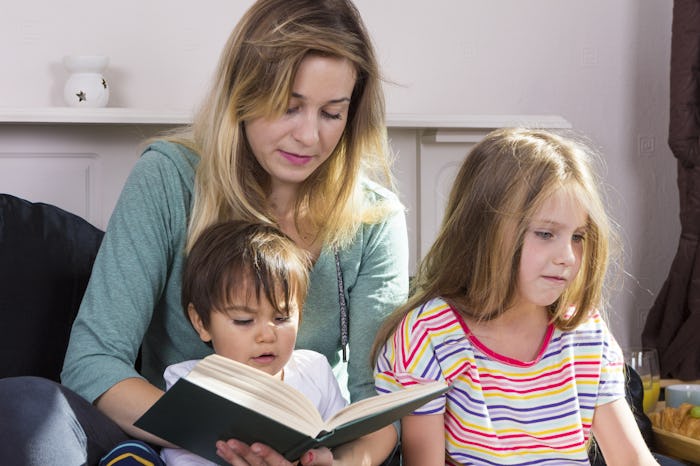Life

5 Fairy Tales All Parents Read To Their Kids That Perpetuate Rape Culture
When I was little I loved fairy tales. In fact, my mom read them to me until I was old enough to read them to myself. So when my daughter was born, I ran out and bought two anthologies of fairy tales almost immediately. But as I read these blasts from my past to my daughter, I started to feel uneasy. Maybe I was feeling this way because I realized just how sexist fairy tales are, or maybe it's because it dawned on me that fairy tales perpetuate rape culture. Either way, I quickly banned all fairy tales from our home and, honestly, haven't read one since.
Why can't we either refresh these old fairy tales with today's social norms, or push them to the "antiquated" section of the library? I mean, fairy tales have been updated numerous times since their original forms. Charles Perrault's Cinderella, for example, was a lot more violent and brutal when it was first created. In the first version of the now-beloved story, Cinderella's stepsisters mutilate themselves in order to fit into the glass slipper. One cuts off her heel, while the other cuts off her toe. And, in the end, pigeons peck the sisters' eyes out. Clearly, no one is reading that particular version to their kids. We changed it, because we knew we had to in order to make it more kid-friendly.
We've changed the endings to numerous fairy tales, too. In The Little Mermaid, our main character happily married the Prince, instead of losing her life to suicide like she does in the original Hans Christian Andersen version. So, we update, revise, renew, and redesign outdated material so that it's more suitable for children. It's called evolution, not censorship. The original stories are still available to those who seek them, but those who'd rather not give their children nightmares have a milder form they can choose to read, too.
So, when it comes to perpetuating toxic masculinity or rape culture, promoting sexism and the patriarchy, why can't we create new fairy tales, too? Until that happens, consider the message the stories below send to our children.
'Beauty & The Beast'
Where do I even start with this one? A tyrant who emotionally and verbally abuses the woman he captured and then makes it all better because he starts to treat her like a person? Or shall I discuss the other male in the story, who stalks Belle and won't take "no" for an answer? There is nothing endearing about any male figure in this tale and, yet, little girls everywhere swoon over the brute that is The Beast.
'Snow White & The Seven Dwarfs'
She was unconscious and then a prince kissed her. How does one give consent when one is unconscious? Here's a hint: one can't.
'Sleeping Beauty'
First, let's begin with the fact that in the original Sleeping Beauty, Aurora was raped while she slept, and woke up to have a child. Second, in the current, milder version of the book, the Prince still kisses Aurora while she is unconscious to wake her up. What, may I ask, gives him the right to kiss her without her permission?
'Little Red Riding Hood'
The Wolf stalks Little Red and when he realizes he can't have her, then he kills her grandmother, and then tricks her into "coming closer" to her. The message in the story is that women shouldn't walk around alone because predators are obviously all around them, lurking behind every corner. Another "lesson" this tale attempts to teach our children? That woman need strong men, like the huntsmen, to rescue them.
'The Little Mermaid'
While The Little Mermaid does not overtly promote rape culture, the fact that a naive young woman leaves her entire family and literally gives away her voice in order to be with a man is as toxic as it gets in a fairy tale. Also, if she can't speak, how can she consent, right?
Check out Romper's new video series, Bearing The Motherload, where disagreeing parents from different sides of an issue sit down with a mediator and talk about how to support (and not judge) each other’s parenting perspectives. New episodes air Mondays on Facebook.